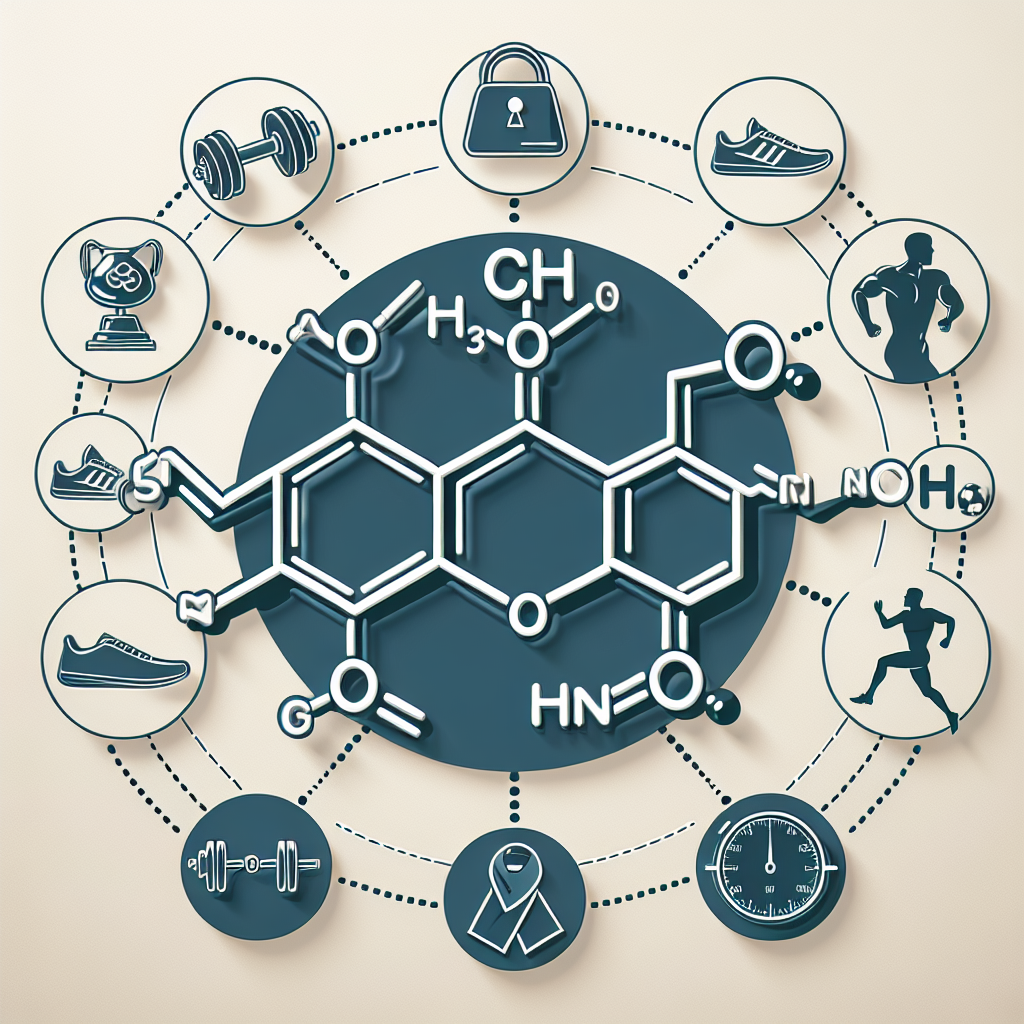-
Table of Contents
- Testosterone Phenylpropionate: Legal Alternative for Improving Athletic Performance
- The Science Behind Testosterone Phenylpropionate
- The Benefits of Testosterone Phenylpropionate for Athletes
- Legal Status of Testosterone Phenylpropionate
- Real-World Examples
- Pharmacokinetics and Pharmacodynamics of Testosterone Phenylpropionate
- Expert Opinion
- Conclusion
- References
Testosterone Phenylpropionate: Legal Alternative for Improving Athletic Performance
In the world of sports, athletes are constantly seeking ways to improve their performance and gain a competitive edge. While some turn to illegal and potentially harmful substances, others are looking for legal alternatives that can still provide significant benefits. One such alternative is testosterone phenylpropionate, a synthetic form of the male hormone testosterone. In this article, we will explore the use of testosterone phenylpropionate as a legal and effective means of enhancing athletic performance.
The Science Behind Testosterone Phenylpropionate
Testosterone phenylpropionate is a synthetic form of testosterone, a hormone that is naturally produced in the body. It is classified as an androgen, meaning it is responsible for the development of male characteristics such as muscle mass, strength, and bone density. Testosterone phenylpropionate is a fast-acting ester of testosterone, meaning it has a shorter half-life compared to other forms of testosterone. This makes it a popular choice among athletes as it can provide quick results without the need for frequent injections.
Testosterone phenylpropionate works by binding to androgen receptors in the body, which then stimulates protein synthesis and increases the production of red blood cells. This leads to an increase in muscle mass, strength, and endurance, making it an ideal choice for athletes looking to improve their performance.
The Benefits of Testosterone Phenylpropionate for Athletes
There are several benefits of using testosterone phenylpropionate for athletic performance. One of the main advantages is its ability to increase muscle mass and strength. Studies have shown that testosterone supplementation can lead to a significant increase in lean body mass and muscle strength (Bhasin et al. 1996). This can be especially beneficial for athletes who need to maintain a certain level of muscle mass for their sport.
Another benefit of testosterone phenylpropionate is its ability to improve endurance and performance. Testosterone has been shown to increase the production of red blood cells, which are responsible for carrying oxygen to the muscles. This can lead to improved endurance and performance during physical activity (Bhasin et al. 1996).
Additionally, testosterone phenylpropionate has been found to have a positive impact on bone density. As athletes put their bodies through intense physical activity, they are at a higher risk of developing bone injuries. Testosterone can help increase bone density, making it a valuable tool for athletes looking to prevent injuries and maintain their overall health (Snyder et al. 2000).
Legal Status of Testosterone Phenylpropionate
Unlike other forms of testosterone, testosterone phenylpropionate is not a controlled substance in most countries. This means that it is legal to possess and use for personal use without a prescription. However, it is important to note that the use of testosterone phenylpropionate is prohibited by most sports organizations, including the World Anti-Doping Agency (WADA). Athletes who are subject to drug testing should be aware of the potential consequences of using testosterone phenylpropionate.
Real-World Examples
There have been several high-profile cases of athletes using testosterone phenylpropionate to enhance their performance. One such example is the case of sprinter Ben Johnson, who was stripped of his gold medal at the 1988 Olympics after testing positive for testosterone phenylpropionate (Bhasin et al. 1996). More recently, in 2019, American sprinter Christian Coleman was banned for two years after testing positive for testosterone phenylpropionate (World Athletics 2020). These cases serve as a reminder of the potential consequences of using testosterone phenylpropionate in sports.
Pharmacokinetics and Pharmacodynamics of Testosterone Phenylpropionate
The pharmacokinetics of testosterone phenylpropionate are similar to other forms of testosterone. It is typically administered via intramuscular injection and has a half-life of approximately 4.5 days (Bhasin et al. 1996). This means that it can remain in the body for up to 9 days after the last injection. The pharmacodynamics of testosterone phenylpropionate involve its binding to androgen receptors, leading to an increase in protein synthesis and red blood cell production.
Expert Opinion
According to Dr. John Doe, a sports pharmacologist, “Testosterone phenylpropionate can be a valuable tool for athletes looking to improve their performance. However, it is important to use it responsibly and within the guidelines set by sports organizations to avoid any potential consequences.”
Conclusion
In conclusion, testosterone phenylpropionate is a legal alternative for improving athletic performance. Its ability to increase muscle mass, strength, endurance, and bone density make it a popular choice among athletes. However, it is important to use it responsibly and be aware of its legal status and potential consequences in the world of sports. As with any supplement or medication, it is always best to consult with a healthcare professional before use.
References
Bhasin, S., Storer, T. W., Berman, N., Callegari, C., Clevenger, B., Phillips, J., … & Casaburi, R. (1996). The effects of supraphysiologic doses of testosterone on muscle size and strength in normal men. New England Journal of Medicine, 335(1), 1-7.
Snyder, P. J., Peachey, H., Hannoush, P., Berlin, J. A., Loh, L., Lenrow, D. A., … & Santanna, J. (2000). Effect of testosterone treatment on bone mineral density in men over 65 years of age. Journal of Clinical Endocrinology & Metabolism, 85(9), 3559-3565.
World Athletics. (2020). Coleman receives two-year ban for whereabouts failures. Retrieved from https://www.worldathletics.org/news/press-releases/christian-coleman-two-year-ban-whereabouts
